This pub is closed permanently. Your nearest Wetherspoon pub: The Myrtle Grove, Bingley
Sir Norman Rae is something of an unsung hero in Shipley. He made his fortune from the woollen trade and was elected the town’s MP (1918–1923). His wealth enabled him to purchase a large area of land which he presented to Shipley Council as playing fields (Northcliffe Park). He also encouraged university study by providing scholarships and established Shipley Nursing Home. On his death, in 1928, it was reported, in the Shipley Council minutes, that he was the greatest benefactor to the district since Sir Titus Salt.
Text about Sir Norman Rae.
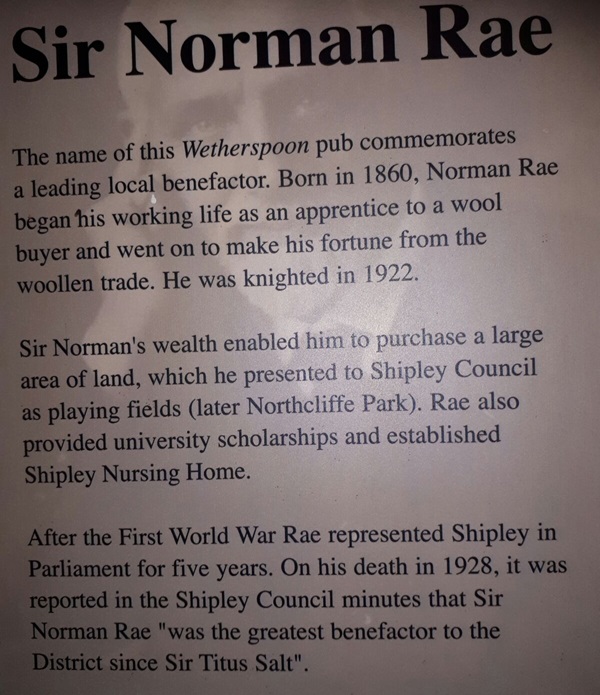
The text reads: The name of this Wetherspoon pub commemorates a leading local benefactor. Born in 1860, Norman Rae began his working life as an apprentice to a wool buyer and went on to make his fortune from the woollen trade. He was knighted in 1922.
Sir Norman’s wealth enabled him to purchase a large area of land, which he presented to Shipley Council as playing fields (later Northcliffe Park). Rae also provided university scholarships and established Shipley Nursing Home.
After the First World War Rae represented Shipley in Parliament for five years. On his death in 1928, it was reported in the Shipley Council minutes that Sir Norman Rae “was the greatest benefactor of the District since Sir Titus Salt”.
Photographs of Sir Norman Rae.
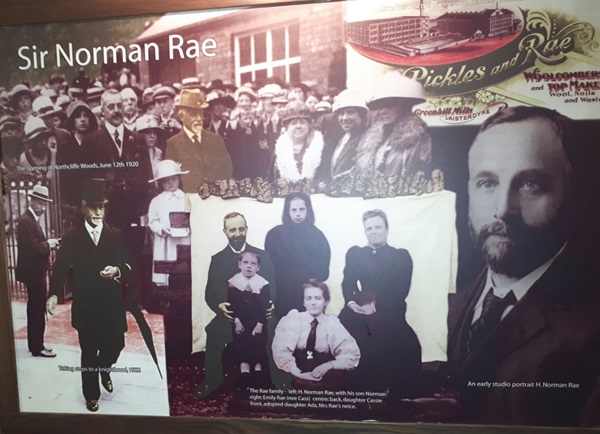
Top left: The opening of Northcliffe Woods, June 12, 1990
Bottom left: Taking steps to a knighthood, 1922
Bottom middle: The Rae family – left: H Norman Rae, with his son Norman
Right: Emily Rae (nee Cass) Centre: Back, daughter Cassie, front, adopted daughter Ada, Mrs Rae’s niece.
Bottom right: An early studio portrait H Norman Rae.
Text about the history of Shipley.
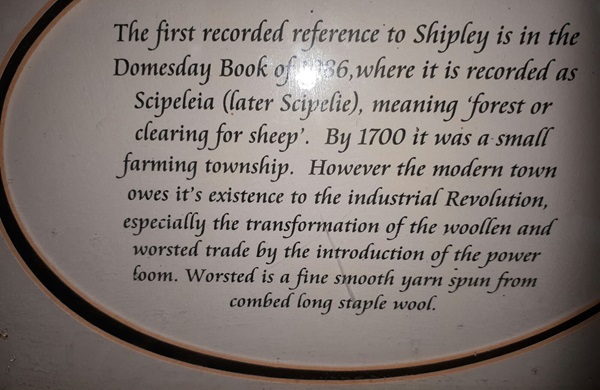
The text reads: The first recorded reference to Shipley is in the Domesday Book of 1986, where it is recorded as Scipeleia (later Scipeleia), meaning ‘forest or clearing for sheep’. By 1700 it was a small farming township. However the modern town owes its existence to the Industrial Revolution, especially the transformation of the woollen and worsted trade by the introduction of the power loom. Worsted is a fine smooth yarn spun from combed long staple wool.
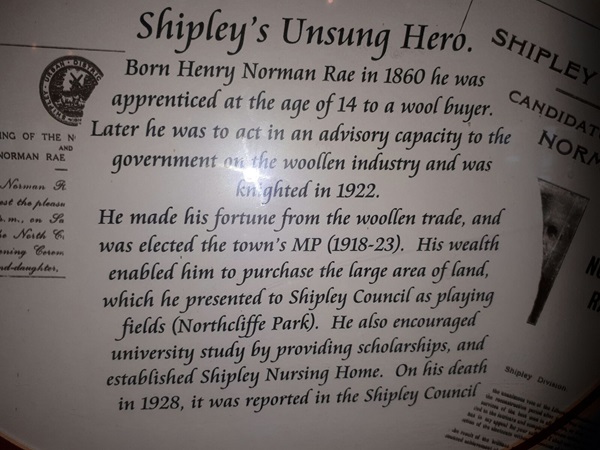
The text reads: Born Henry Norman Rae in 1860 he was apprenticed at the age of 15 Born Henry Norman Rae in 1860 he was apprenticed at the age of 14 to a wool buyer. Later he was to act in an advisory capacity to the government on the woollen industry and was knighted in 1922.
He made his fortune from the woollen trade, and was elected the town’s MP (1918-23). His wealth enabled him to purchase the large area of land, which he presented to Shipley Council as playing fields (Northcliffe Park). He also encouraged university study by providing scholarships, and established Shipley Nursing Home. On his death in 1928, it was reported in the Shipley council.
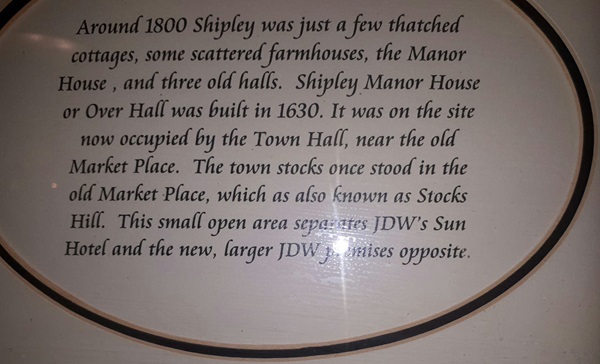
The text reads: Around 1800 Shipley was just a few thatched cottages, some scattered farmhouses, the Manor House, and three old halls. Shipley Manor House or Over Hall was built in 1630. It was on the site now occupied by the Town Hall, near the old Market Place. The town stocks once stood in the old Market Place, which was also known as Stocks Hill. This small open area separates JDW’s Sun Hotel and the new, larger JDW premises opposite.
External photograph of the building – main entrance.
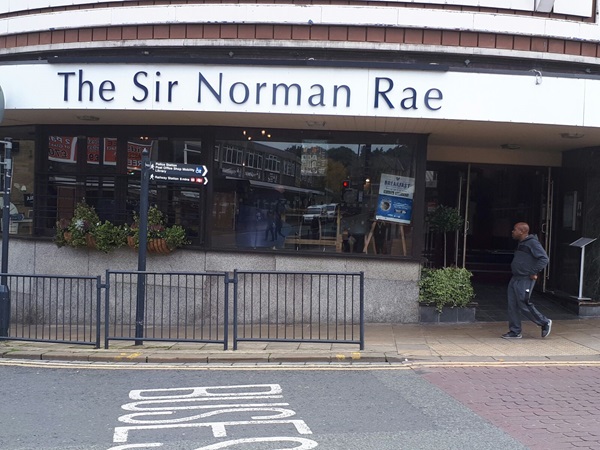
If you have information on the history of this pub, then we’d like you to share it with us. Please e-mail all information to: pubhistories@jdwetherspoon.co.uk